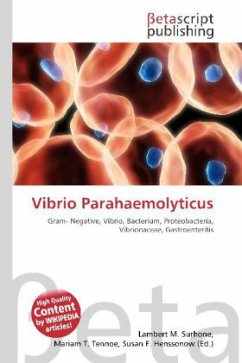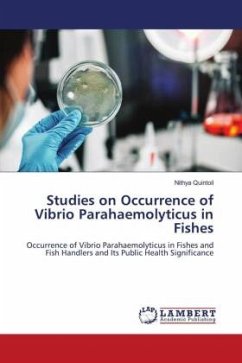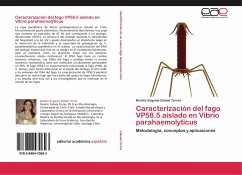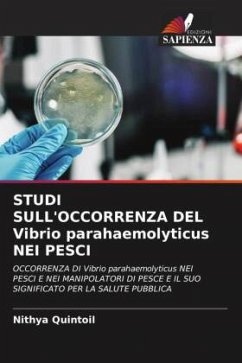
Vibrio Parahaemolyticus
Versandkostenfrei!
Versandfertig in 6-10 Tagen
26,99 €
inkl. MwSt.

PAYBACK Punkte
13 °P sammeln!
Please note that the content of this book primarily consists of articles available from Wikipedia or other free sources online. Vibrio parahaemolyticus is a curved, rod-shaped, Gram-negative bacterium found in brackish saltwater, which, when ingested, causes gastrointestinal illness in humans. V. parahaemolyticus is oxidase positive, facultatively aerobic, and does not form spores. Like other members of the genus Vibrio, this species is motile, with a single, polar flagellum.While infection can occur via the fecal-oral route, ingestion of bacteria in raw or undercooked seafood, usually oysters...
Please note that the content of this book primarily consists of articles available from Wikipedia or other free sources online. Vibrio parahaemolyticus is a curved, rod-shaped, Gram-negative bacterium found in brackish saltwater, which, when ingested, causes gastrointestinal illness in humans. V. parahaemolyticus is oxidase positive, facultatively aerobic, and does not form spores. Like other members of the genus Vibrio, this species is motile, with a single, polar flagellum.While infection can occur via the fecal-oral route, ingestion of bacteria in raw or undercooked seafood, usually oysters, is the predominant cause the acute gastroenteritis caused by V. parahaemolyticus. Wound infections also occur, but are less common than seafood-borne disease. The disease mechanism of V. parahaemolyticus infections has not been fully elucidated. However, most clinical disease results from strains that carry either the thermostable direct hemolysin gene (tdh) or the tdh-related hemolysin gene (trh) or both genes.












